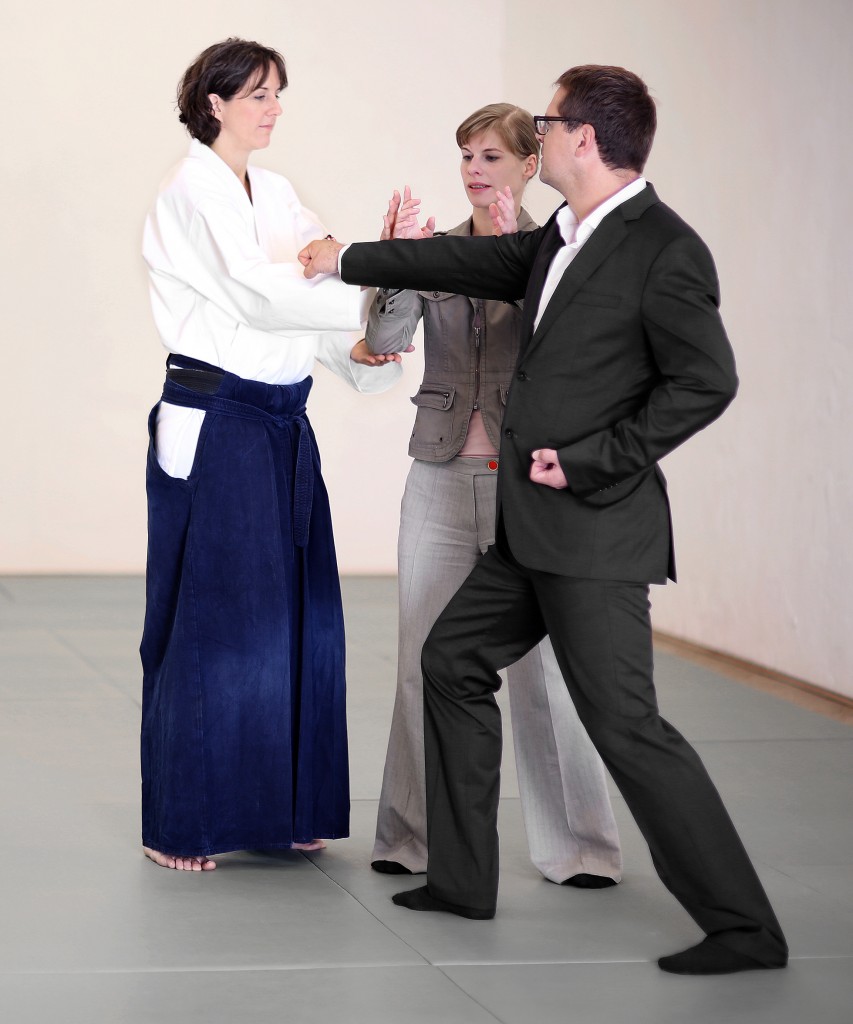Embodied training develops body and mind
Stress, conflict and pressure are usually experienced mentally and/or emotionally. Systems such as autogenic training or mindfulness/meditation work on the same cognitive level and help in better understanding mental processes. This understanding can be completed by incorporating the body, too.
Latest findings in neurobiology lead a new way to a more holistic approach of learning which accomplishes just that. Studies show, it’s not just that the body influences the mind. The body also causes direct changes in our minds. The smallest unconscious movements or changes in our body posture directly change not only our mood, but also our judgement, and much more.
For example, standing with the legs far apart and with the hands set firmly on the hips measurably raises blood testosterone, and with it the active ability to cope with current stress or aggressors.
(http://www.ncbi.nlm.nih.gov/pubmed/20855902).
Holistic learning changes reaction patters sustainably
Neurobiologists estimate that aproximately 95% of human behaviours – especially in situations of stress – happen without conscious control or influence. On perception of a stressor, chain reactions predominantly dictated by instinct and habit, set in immediately. The time frame during which conscious influence on this chain reaction can be exerted is in fact only a few milliseconds.
Embodied learning can help to generate new neurological pathways, and so a controlled, conscious reorganisation of the behaviours becomes possible. Physical agility therefore directly promotes mental and emotional agility in its truest sense.
Why use aikido for this?
In contrast to other martial arts such as judo or karate, aikido is not a martial sport but purely a martial art: This means that there is no competition. Instead aikido training focuses on mutual practice with the aim of helping each other develop our full potential. Most exercises are carried out in pairs, not alone, and in a cooperative setting. This is rather unusual in martial arts and allows for the deep study and understanding of communication and interaction. For this reason, these seminars are especially suitable for teambuilding events.
Furthermore, in daily life as well as at the workplace, situations frequently arise which cost us energy, time and strength. Aikido can help us in finding new strategies to deal with these situations, and sometimes even to gain power from them.
Last but not least, aikido promotes strength and readiness to face conflict. However, as the “martial art of peace” it teaches at the same time that, from a strong and safe position, fighting is not always necessary. The principles of aikido strengthen presence, assertiveness and focus as well as harmony and adaptability. It brings together these polarities that intellectually may seem incompatible. Aikido affords us a physical and immediate insight into these principles.
The concept of embodied learning through aikido is applied in two areas:
as Embodied leadership Training and as Embodied Stress Reduction Seminars.
This body-based approach can best be judged by trying it out and experiencing it first hand. I would like to invite you to contact me to schedule an appointment.
 Aikido in Business
Aikido in Business 